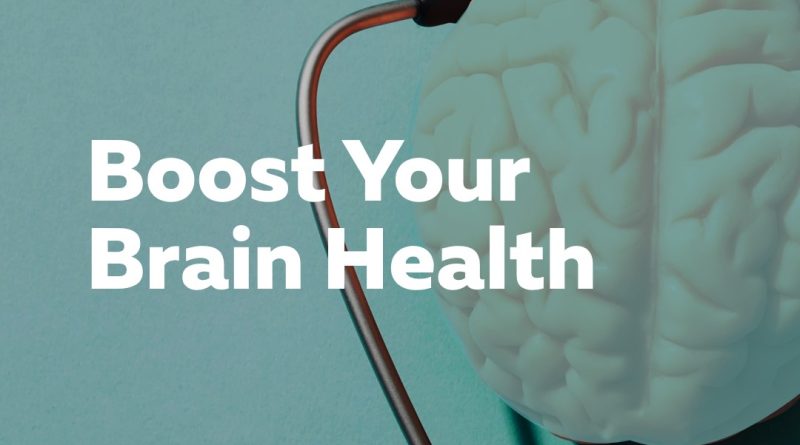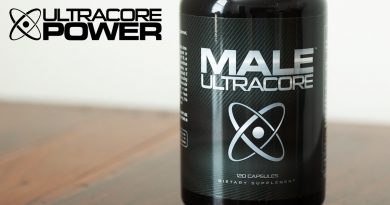Recommended Dosages for Popular Brain Health Supplements
In an era where cognitive performance is highly valued, brain health supplement have gained substantial popularity. These supplements, often touted for their potential to enhance memory, focus, and overall cognitive function, have become a staple in the wellness routines of many individuals. However, understanding the correct dosage is crucial to ensure both safety and efficacy. This article delves into the recommended dosages for some of the most popular brain health supplements, helping you make informed decisions about their use.
Understanding Brain Health Supplements
Brain health supplements, also known as nootropics, are dietary supplements that support cognitive function. They come in various forms, including capsules, powders, and liquids, and are composed of different ingredients, each with unique benefits. The most common ingredients found in these supplements include:
- Omega-3 Fatty Acids: Essential for brain function and development.
- Ginkgo Biloba: Known for improving blood flow to the brain.
- Bacopa Monnieri: Believed to enhance memory and reduce anxiety.
- Phosphatidylserine: A phospholipid that is crucial for maintaining cellular function in the brain.
- Acetyl-L-Carnitine: May boost brain energy and function.
- L-Theanine: Known for promoting relaxation without drowsiness.
- Curcumin: Has antioxidant properties that may help protect brain cells.
While these ingredients are widely recognized for their cognitive benefits, the dosage can vary significantly depending on the specific supplement and individual needs.
Recommended Dosages for Popular Brain Health Supplements
1. Omega-3 Fatty Acids
Omega-3 fatty acids, particularly EPA (eicosapentaenoic acid) and DHA (docosahexaenoic acid), are crucial for brain health. These essential fatty acids are linked to improved cognitive function, memory, and mood.
- Recommended Dosage: 1,000-2,000 mg per day of combined EPA and DHA is generally recommended for cognitive health. For individuals with specific health conditions, such as depression or ADHD, higher doses may be suggested, but these should be taken under medical supervision.
2. Ginkgo Biloba
Ginkgo biloba is one of the most researched brain supplements, known for its ability to enhance cognitive function by increasing blood flow to the brain.
- Recommended Dosage: 120-240 mg per day, divided into two or three doses, is commonly recommended. Some studies suggest starting with a lower dose and gradually increasing to assess tolerance.
3. Bacopa Monnieri
Bacopa Monnieri has been used in traditional Ayurvedic medicine for centuries. It is believed to enhance memory and cognitive function by reducing anxiety and oxidative stress in the brain.
- Recommended Dosage: 300-450 mg of a standardized extract containing 50% bacosides per day. This supplement is often taken with food to enhance absorption and reduce gastrointestinal discomfort.
4. Phosphatidylserine
Phosphatidylserine is a phospholipid that plays a critical role in maintaining cellular function in the brain. It has been studied for its potential to improve memory and cognitive decline in older adults.
- Recommended Dosage: 100-300 mg per day. For cognitive decline, a higher dose may be required, but starting with a lower dose is advised to monitor tolerance.
5. Acetyl-L-Carnitine
Acetyl-L-carnitine (ALCAR) is an amino acid that helps produce energy in the brain. It has been linked to improved cognitive function, particularly in older adults.
- Recommended Dosage: 500-1,500 mg per day, usually divided into two doses. This supplement is best taken on an empty stomach to enhance absorption.
6. L-Theanine
L-Theanine is an amino acid found in green tea. It is known for promoting relaxation and reducing stress without causing drowsiness, making it a popular choice for enhancing focus and mental clarity.
- Recommended Dosage: 100-200 mg per day. For those seeking enhanced cognitive benefits, combining L-Theanine with caffeine (usually 100 mg of L-Theanine with 50 mg of caffeine) can improve focus and alertness.
7. Curcumin
Curcumin, the active compound in turmeric, is renowned for its potent antioxidant and anti-inflammatory properties. It has been studied for its potential to protect brain cells and improve cognitive function.
- Recommended Dosage: 500-2,000 mg per day of curcumin with piperine (black pepper extract) to enhance absorption. It’s often recommended to start with a lower dose to gauge individual tolerance.
Factors Influencing Dosage
The recommended dosages provided above are general guidelines. However, several factors can influence the optimal dosage for each individual, including:
- Age: Older adults may require different dosages due to changes in metabolism and absorption.
- Health Conditions: Certain health conditions, such as depression or cognitive decline, may necessitate higher doses.
- Medication Interactions: Some supplements may interact with medications, altering their effectiveness or increasing the risk of side effects.
- Body Weight: Dosage may need to be adjusted based on an individual’s body weight.
- Diet: Nutrient absorption can be affected by diet, and supplementation may need to be adjusted accordingly.
It’s essential to consult with a healthcare provider before starting any new supplement, especially if you have pre-existing health conditions or are taking other medications.
How Avant Can Help
Avant is committed to helping patients navigate the complex world of brain health supplements. Whether you’re looking to enhance cognitive function, improve memory, or reduce stress, Avant offers a wide range of high-quality brain health supplements tailored to meet your specific needs. Our team of experts is available to guide you through the selection process, ensuring you choose the right supplement at the right dosage for optimal results.
At Avant, we understand that every patient’s needs are unique. That’s why we prioritize personalized care, providing you with the information and support you need to achieve your brain health goals safely and effectively.
Frequently Asked Questions (FAQs)
1. Can I take multiple brain health supplement together?
Yes, many brain health supplement can be taken together, as they often have complementary effects. However, it’s important to ensure that the combined dosages do not exceed recommended limits and to consult with a healthcare provider to avoid potential interactions.
2. How long does it take to see results from brain health supplement?
The time frame for noticeable effects can vary depending on the supplement. Some, like L-Theanine, may provide immediate benefits, while others, such as Omega-3 fatty acids, may take several weeks to months of consistent use to show results.
3. Are brain health supplements safe for long-term use?
Most brain health supplements are considered safe for long-term use when taken at recommended dosages. However, it’s advisable to take periodic breaks and consult with a healthcare provider for ongoing monitoring.
4. Can I take brain health supplement if I have a pre-existing health condition?
If you have a pre-existing health condition, it’s crucial to consult with a healthcare provider before starting any new supplement. Certain conditions or medications may interact with brain health supplement, necessitating dosage adjustments or alternative options.
5. Is it necessary to cycle brain health supplement?
Cycling supplements (taking them for a period and then taking a break) can help prevent tolerance and maintain effectiveness. However, the need to cycle depends on the specific supplement and individual response.
Conclusion
Brain health supplements offer a promising way to support cognitive function, memory, and overall mental well-being. However, understanding the recommended dosages and individual factors that influence supplementation is crucial for achieving the desired benefits. Always consult with a healthcare provider before starting any new supplement regimen to ensure safety and effectiveness.
At Avant, we are dedicated to helping you optimize your brain health with carefully selected supplements that meet your unique needs. Ready to take the next step in supporting your cognitive function? What brain health goals are you hoping to achieve?
Also know about 7 Ways To Boost Dopamine Level For Better Mental Health




